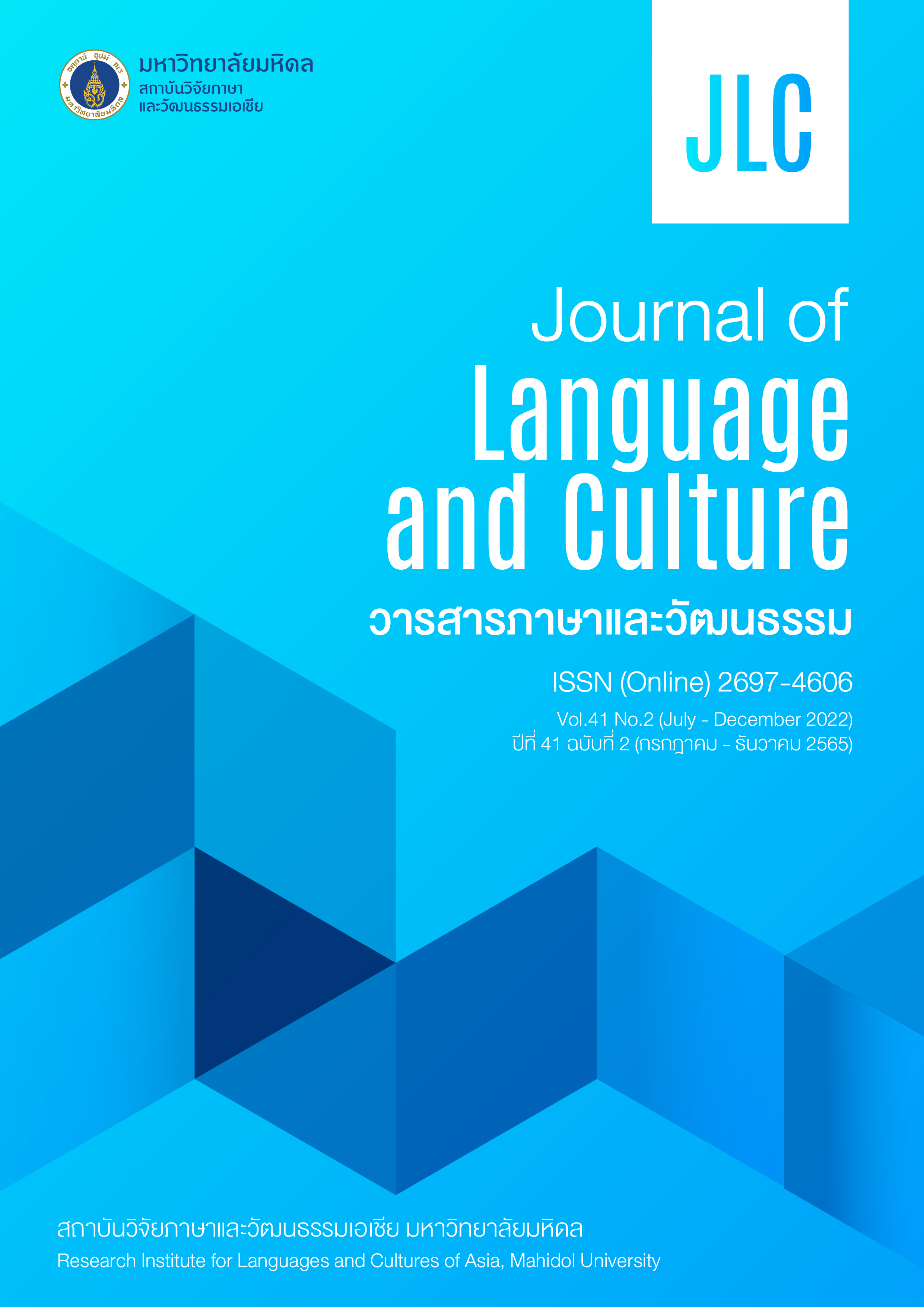Communism in Thailand as a transnational revolution and the influence of China’s foreign policy
Main Article Content
Abstract
Thailand/Siam was one of the earliest areas where Chinese and Vietnamese communists carried out activities due to its geographical advantages (its key position as mainland Southeast Asia) and political independence from colonial powers. Therefore, communism in Thailand was deeply influenced by the Chinese and Vietnamese since its birth. When the Communist Party of Thailand (CPT) embarked on the armed struggle approach in the 1960s, Maoism became the most important ideological source of the CPT. This research focuses on communism in Thailand and its external connections (especially China and Vietnam) since the early 20th century. This study aims to explore the Thai communist revolutionary movement from a transnational perspective to analyze the CPT’s external connections and China’s foreign policies. Since the founding of the People’s Republic of China (PRC) in 1949, China’s foreign policy has been seeking a balance between pragmatism and radicalism. China’s foreign policy reached the peak of radicalism at the beginning of the Cultural Revolution, which also accelerated the support of the CPT. This paper argues that the communist revolutionary movement in Thailand was a transnational movement that had connections with China, Vietnam and other communist parties in Southeast Asia; and that the PRC’s foreign policy, which was shaped by internal and external factors, deeply influenced the CPT.
Article Details
The articles featured in the Journal of Language and Culture (JLC) constitute academic works representing the viewpoints of the respective author(s). It is crucial to note that these opinions do not necessarily reflect those of the Editorial Board.
All articles published in JLC are released under the Creative Commons Attribution 4.0 International License (CC BY 4.0). This license grants permission for unrestricted use, distribution, and reproduction in any medium, provided proper credit is given to the original author(s) and the source.


